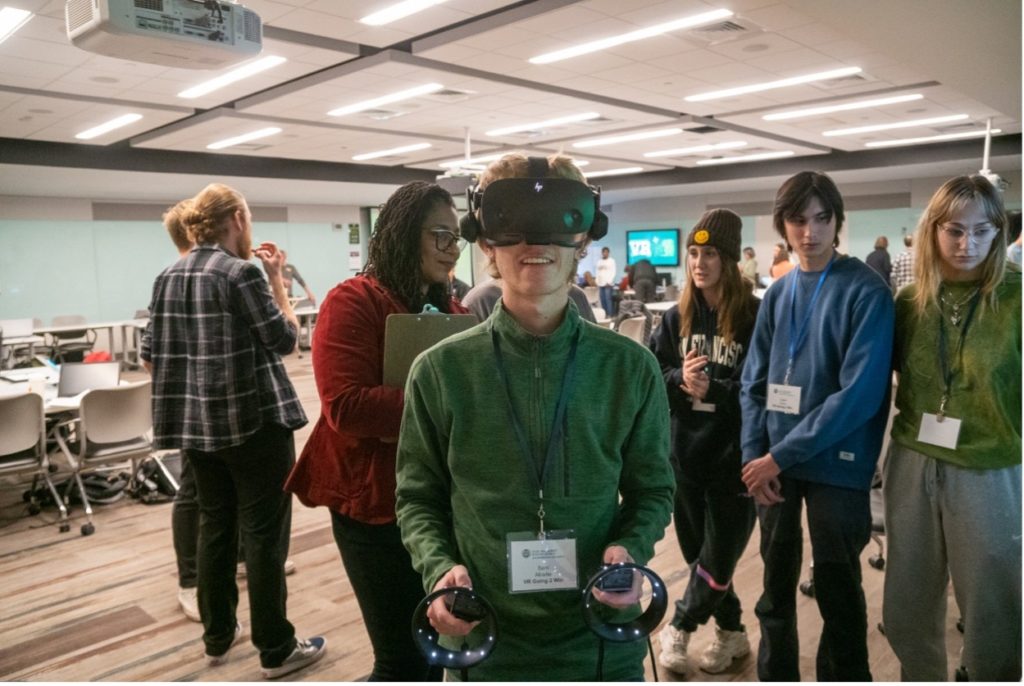
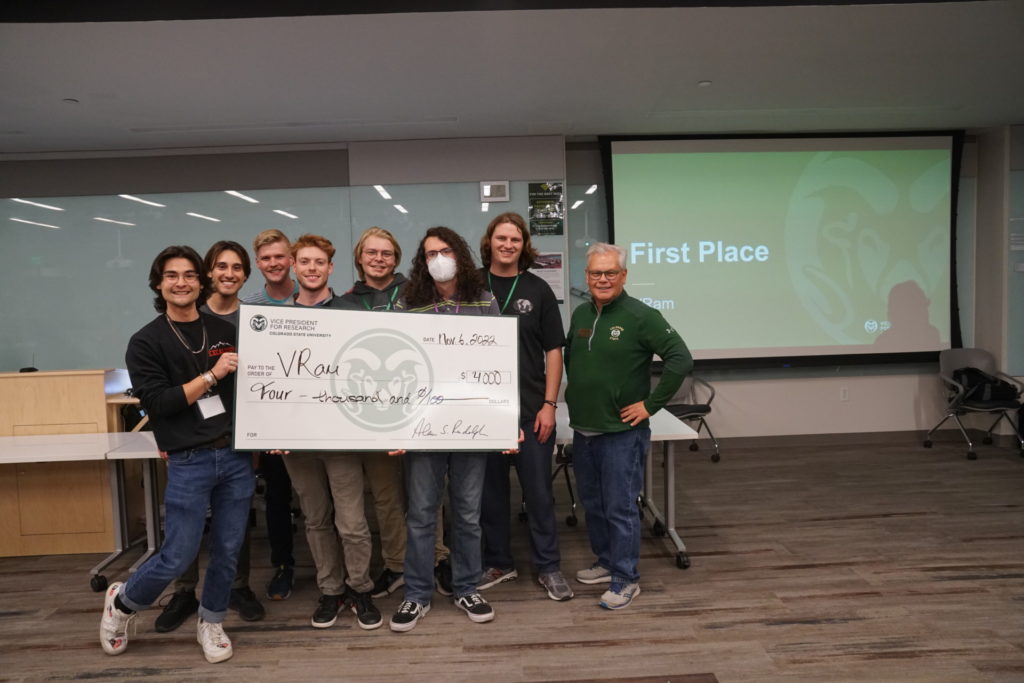
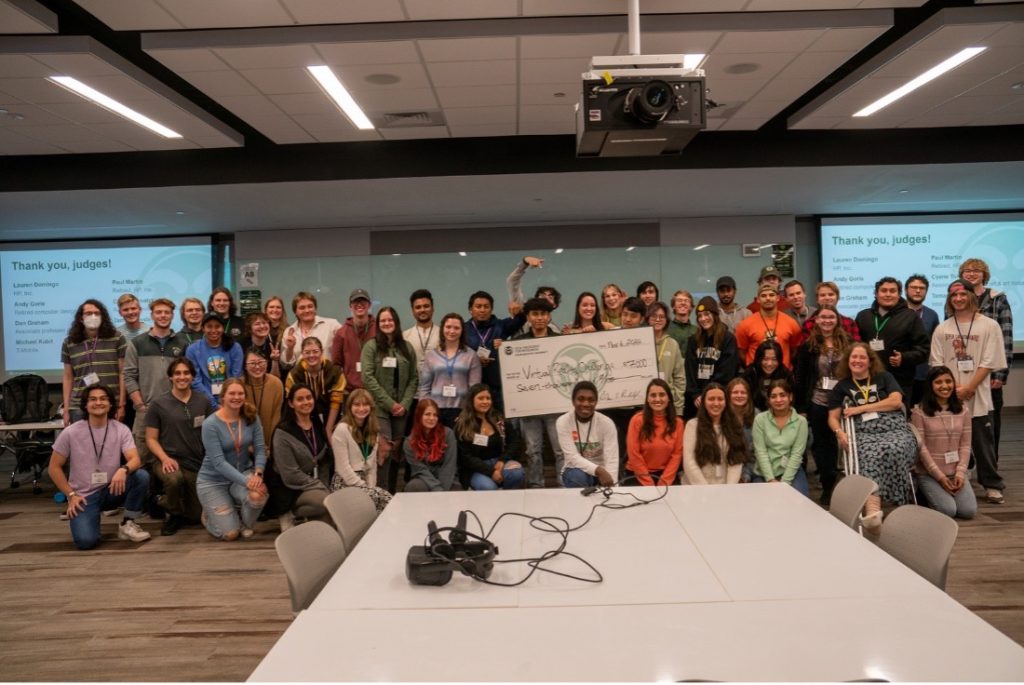
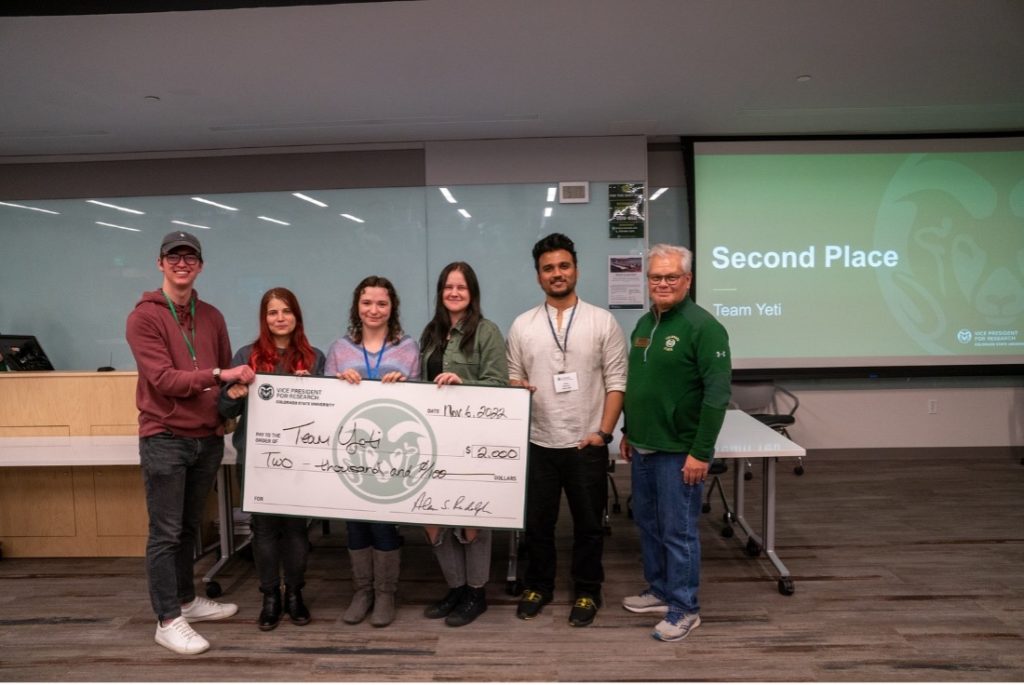
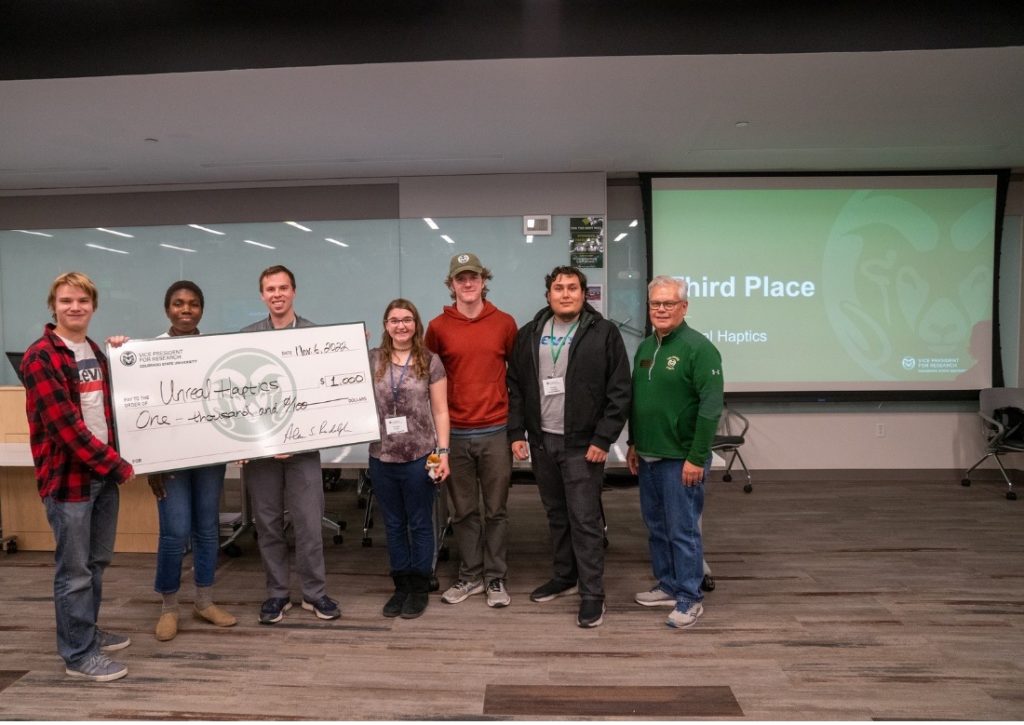
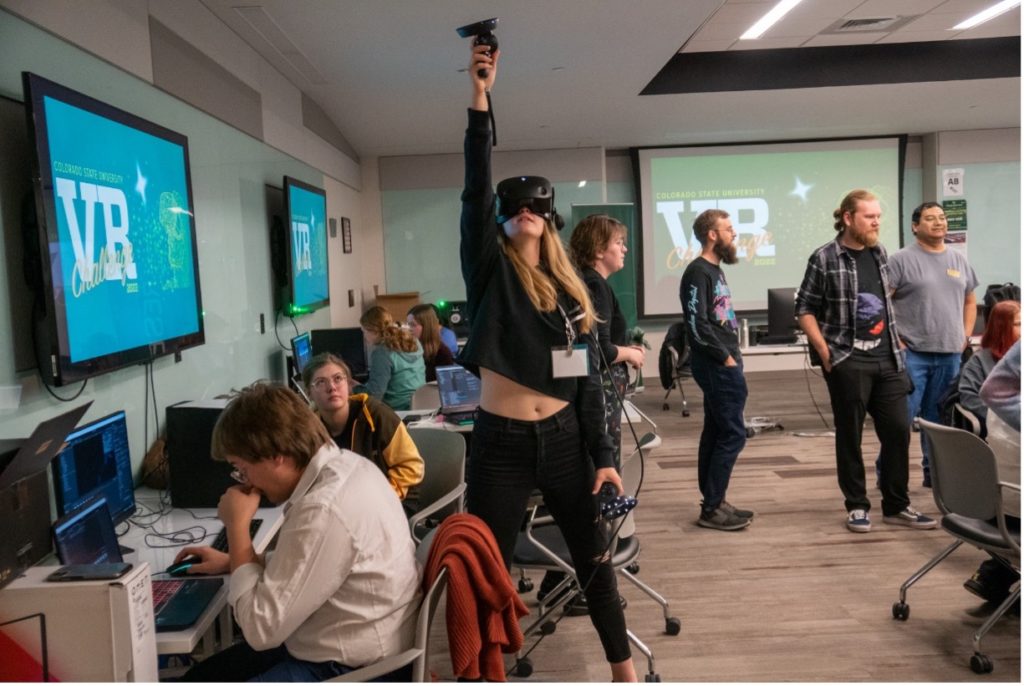
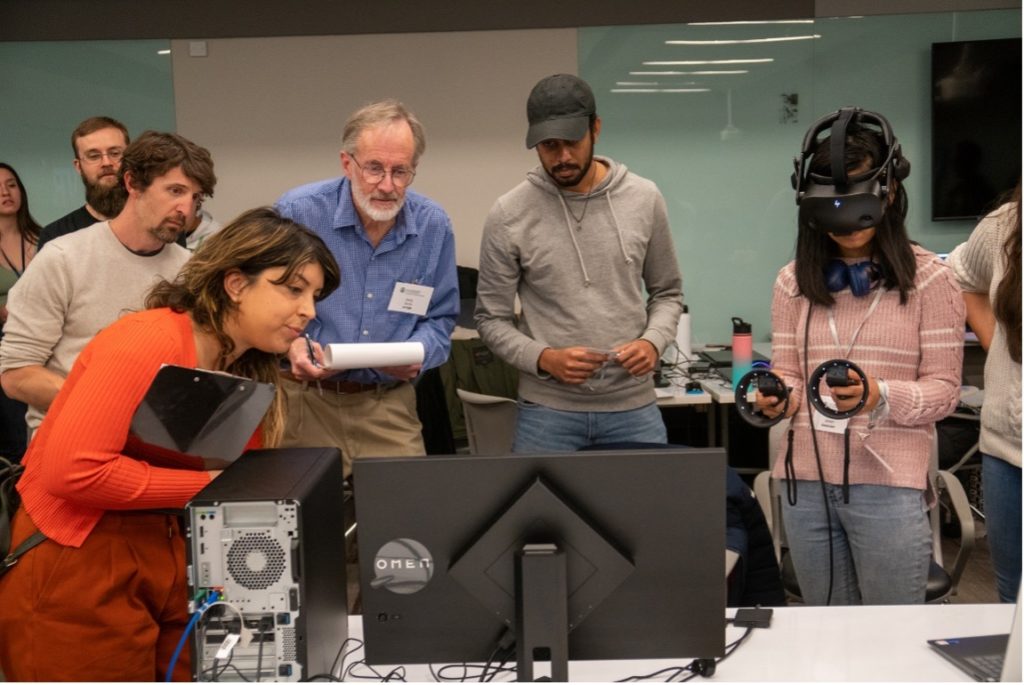
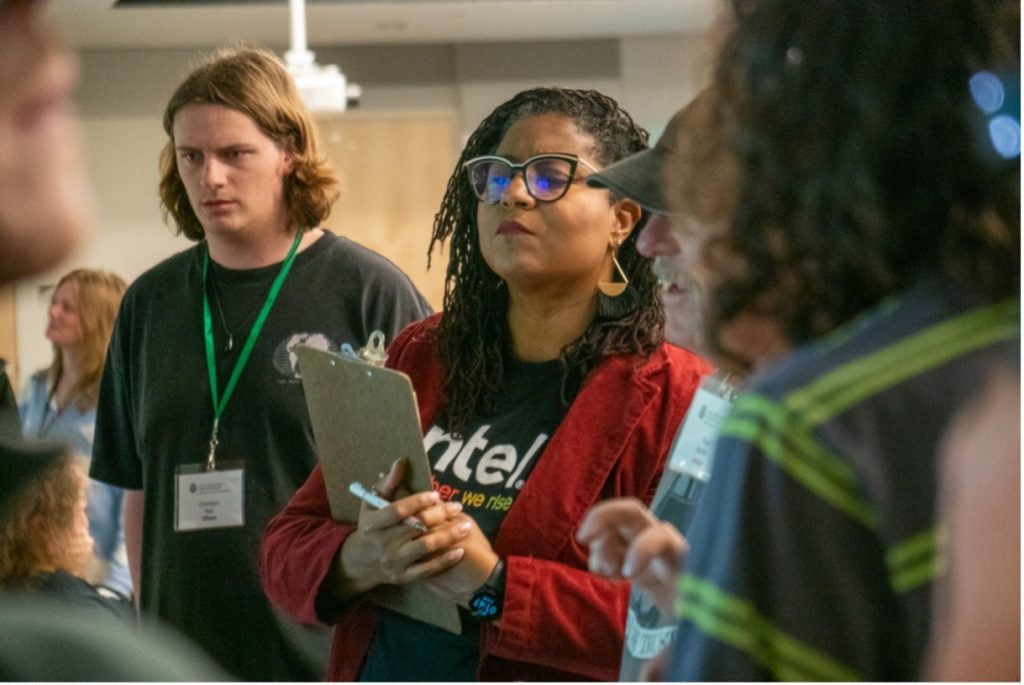

Photos by Austin Hannon
At the end of a three-day competition last weekend, team VRam team, consisting of seven students from computer science, construction management, data science, and design and merchandising, won first place at the CSU VR challenge, earning a $4,000 prize for their work.
“This experience gave me the opportunity to work with a team of others,” said Everett Lewark, a sophomore studying computer science and VRam member. “We got to use our individual strengths to contribute to this project.”
In all, 52 students from across the campus participated in the event, held at the Biology Building Nov. 4-6. Throughout the challenge, interdisciplinary teams used virtual reality technology to create solutions to mental health-themed challenges submitted by CSU faculty.
VRam’s winning program was designed to replicate climbing a tree as a child with punishments and rewards based on the decisions made to simulate a “risky play” environment, which is proven to enhance child development. Team members included: Matthew Buckman, Everett Lewark, Sean McCauley, Lorenzo Mondragon, Christian Nail, Jakob Wakabayashi and Trevor Olsen.
“I appreciated the amount of teamwork that was involved with the event,” said VRam member Lorenzo Mondragon, a sophomore studying data science. “It was a really cool bonding experience.”
The event returned to campus after a three-year hiatus due to the pandemic. Sponsors including the Office of the Vice President for Research, the College of Health and Human Sciences, and HP, Inc. were excited to see students come together to compete once again.
“It’s amazing to think of what’s ahead of us,” said Alan Rudolph, CSU’s vice president for research. “[Students] are the pioneers of teaching us what’s possible in the immersive world.”
CSU’s virtual reality initiative was created to explore the expanding world of virtual and augmented reality, creating an environment for cross-unit collaboration. In addition to the VR Challenge, departments are provided with resources to implement VR technology into academics. Studies prove this top-down, unified approach is the most effective way to integrate VR initiatives into university environments.
The 11 interdisciplinary teams completed their projects Sunday evening after about 22 hours of competition. Winning teams will split $7,900 in prize money.

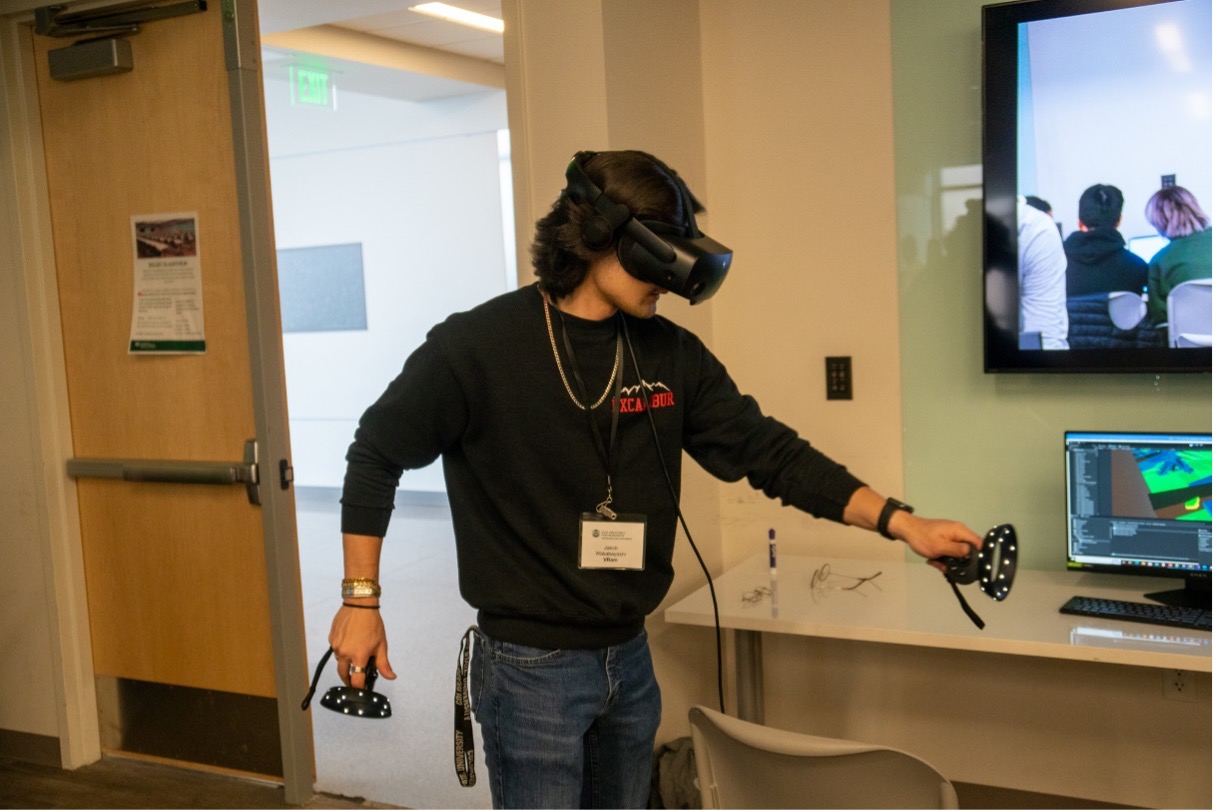
Team VRam tests their program using HP, Inc.’s Omnicept headset.
Judges scored each project based on design and methodology, construction and testing, creativity and cross-disciplinary focus, and student presentations.
Team Yeti took second place with their program placing a user in a stressful work environment and encouraging them to use mindfulness techniques. Team members included: Lena Hinzer, Rachel Masters, Jalynn Nicoly, Ryan Blocker and Aditya Raikwar.
The third-place prize went to team Unreal Haptics, which developed an interactive experience to help users overcome existing phobias. Team members included: Cecilia Anakor, Ronaldo Canizales, Alex Treat, Brett Wisniewski, Ian Kilty and Christine Surber.
Team Squirrels in a Blender received the Outstanding Artistry Award for their interactive program implementing exposure therapy for combat-induced PTSD. Team members included: Mady Frangella, Sabrina Moskoe, Jarrin Niswender, Logan Cadman and Benjamin Schraeder.
The Award of Practicality went to team Mech Techs for creating a virtual tour of a town in Mexico providing a sense of belonging and nostalgia for immigrants. Team members included: Sandra Castaneda, Jonathan Garrido, Francisco Hernandez and Abner Itzep-Velasquez.
Team Awaaraas won the Technically Accomplished award for creating a program with combat scenarios to simulate high stress training for military personnel. Team members included: Vishwajeet Bhosale, Saira Jabeen and Arifa Shabnum.